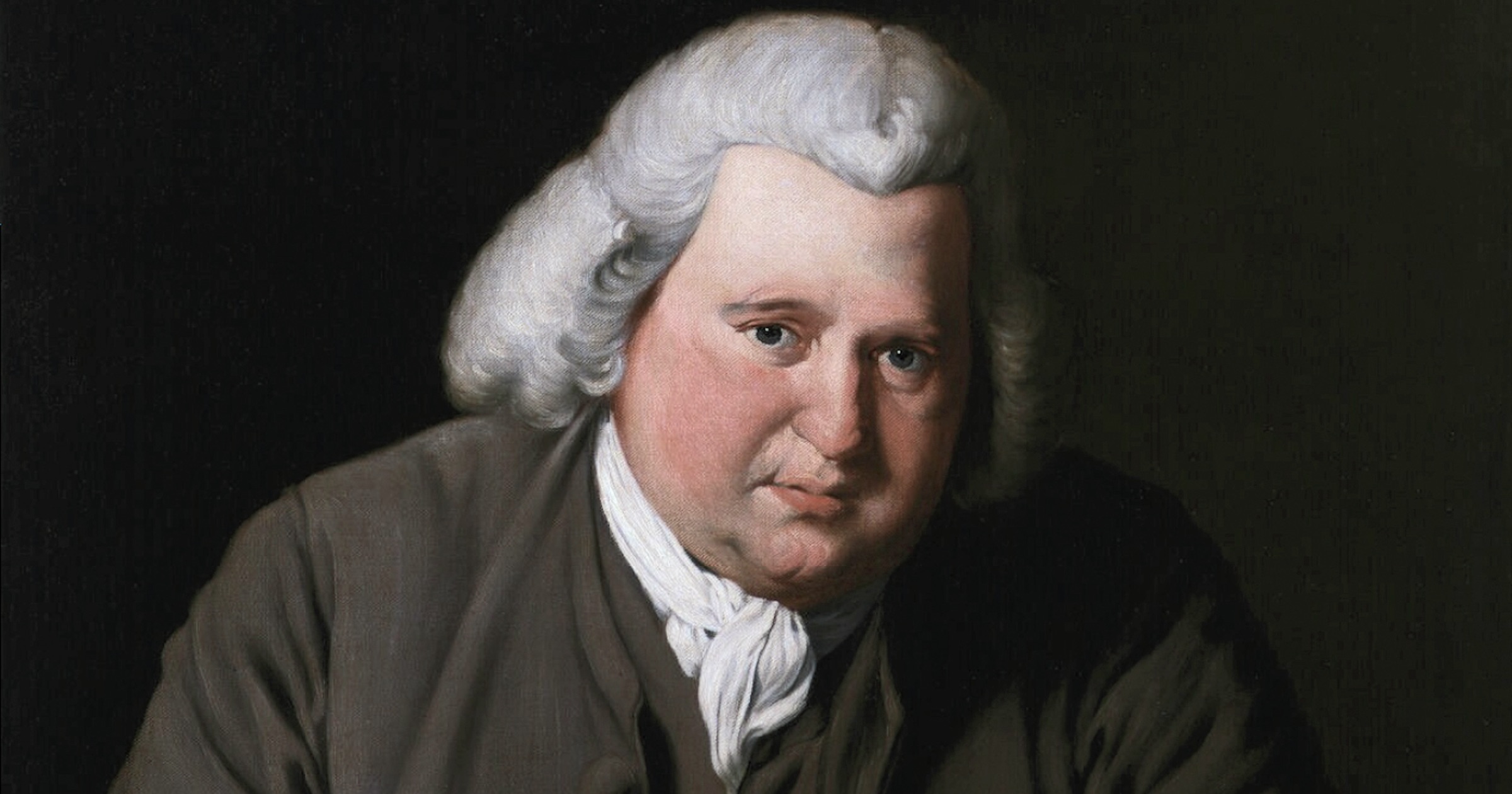 Evolution
Evolution
 Life Sciences
Life Sciences
The Legacy of Erasmus Darwin

Editor’s note: We are delighted to present a series by Neil Thomas, Reader Emeritus at the University of Durham, “Natural Selection: Discovery or Invention?” Find the full series here. Professor Thomas’s recent book is Taking Leave of Darwin: A Longtime Agnostic Discovers the Case for Design (Discovery Institute Press).
The kinship of ideas between Charles Darwin and his grandfather, Erasmus, was something of an open secret in the 19th century. In the course of his lengthy review of the Origin of Species, Oxford’s bishop, Samuel Wilberforce, wrote: “If we go back two generations we find the ingenious grandsire of the author of the Origin of Species speculating on the same subject, and almost in the same manner with his more daring grandson.”1
The Temple of Nature
Although Charles Darwin’s Origin of Species was not published until 1859, an abbreviated literary template for it may be claimed to have been in existence by the 1790s in the shape of a series of quaintly ornate poetic meditations penned by Erasmus Darwin. This is best illustrated by the oft-cited passage where Erasmus describes the emergence of life forms in a process of what we would now term spontaneous generation. That abiogenetic moment would be followed by successive evolutionary stages in which the intellectual scaffolding of his grandson’s Origin of Species is clearly visible:
Organic Life beneath the shoreless waves
Was born and nurs’d in Ocean’s pearly caves;
First forms minute, unseen by spheric glass [=microscope]
Move on the mud, or pierce the watery mass:
These as successive generations bloom.
New powers acquire, and larger limbs assume;
Whence countless groups of vegetation spring,
And breathing realms of fin, and feet, and wing.
Thus the tall Oak, the giant of the wood,
Which bears Britannia’s thunders on the flood;
The Whale, unmeasured monster of the main,
The lordly lion, monarch of the plain,
The eagle soaring in the realms of air,
Whose eye undazzled drinks the polar glare,
Imperious man, who rules the bestial crowd,
Of language, reason, and reflection proud,
With brow erect who scorns this earthy sod,
And styles himself the image of his God;
Arose from rudiments of form and sense,
An embryon point, or microscopic ens!2
Erasmus even touched on the theory of natural selection when he concluded that the strongest and most active animals would propagate the species, so strengthening the race as a whole, all of which indicates that the younger Darwin’s work had clear overlaps with that of his grandfather.
Next, “Myth-Making and Malthus.”
Notes
- “On the Origin of Species,” Quarterly Review, no number (1860), pp. 225-264, here p. 237.
- Erasmus Darwin, The Temple of Nature, facsimile of 1803 edition (Aldershot: Scolar Press, 1973), canto 1, ll. 295-315.
